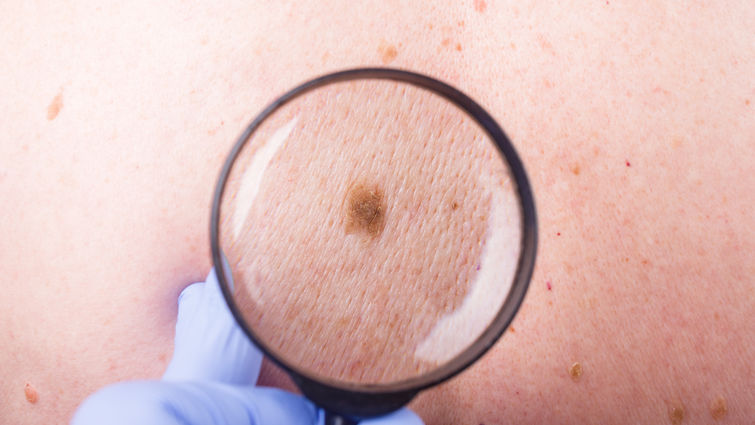The Future of Child Health: Elevating Standards in Paediatric Practice

As the world evolves rapidly, so does the field of paediatrics. With advancements in medical technology, a deeper understanding of child development, and a greater focus on holistic care, paediatric practice is undergoing a transformative shift. The future of child health is no longer just about treating illnesses—it’s about preventing them, understanding the individual child, and shaping a lifetime of well-being from the earliest days.
In this blog, we explore how paediatric care is elevating its standards and what this means for the health and development of the next generation.
1. A Shift from Illness Treatment to Preventive Care
Traditionally, paediatric visits were often reactive—parents would take children to the doctor when they fell ill. But the modern paediatric approach is shifting toward proactive, preventive care.
Well-child visits now focus on monitoring growth, detecting developmental delays early, administering immunizations, and counseling parents on nutrition, sleep, behavior, and emotional health. This shift helps prevent long-term complications and builds a stronger foundation for lifelong wellness.
With data-driven insights and screening tools, paediatricians can catch subtle signs of health concerns long before they escalate, offering early intervention and better outcomes.
2. Integration of Technology in Paediatric Practice
The future of child health is closely linked to technological innovation. From digital health records and telemedicine to smart monitoring devices, technology is transforming how care is delivered.
Key innovations include:
- Telehealth: Offering virtual consultations for non-emergency concerns, improving access for families in remote areas.
- Wearable health tech: Devices that monitor sleep, heart rate, and activity in real time, helping manage chronic conditions like asthma or epilepsy.
- AI-assisted diagnostics: Using algorithms to detect early signs of conditions from imaging or symptom patterns.
These tools allow for faster diagnoses, continuous care, and better communication between parents and providers.
3. Personalized Paediatric Care
No two children are the same—and neither should be their healthcare plans. Future-forward paediatrics focuses on individualized care, where treatment and wellness strategies are tailored to each child’s genetic, environmental, and emotional context.
Advancements in genomics and molecular medicine are making it possible to:
- Predict a child’s risk for certain diseases
- Customize medication plans for better efficacy
- Understand behavioral and neurological differences on a deeper level
Personalized care supports children in reaching their full potential while minimizing unnecessary treatments.
4. Mental Health as a Core Component
One of the most significant shifts in paediatric care is the integration of mental and emotional health into routine practice. Children today face a wide range of psychological pressures—from academic stress and social anxiety to screen addiction and cyberbullying.
Modern paediatricians are trained to:
- Recognize early signs of anxiety, ADHD, or depression
- Offer strategies for emotional regulation and coping
- Refer to child psychologists or counselors when needed
- Encourage open conversations between parents and children
This holistic approach ensures that mental well-being is valued as highly as physical health.
5. Holistic and Family-Centered Care
The best paediatric outcomes arise when care extends beyond the child to involve the entire family. Paediatricians now recognize the family environment, social context, and parental mental health as key determinants of child health.
Family-centered care involves:
- Educating and empowering parents
- Encouraging shared decision-making
- Providing resources for parenting, nutrition, and sleep hygiene
- Respecting cultural beliefs and values
This collaborative approach builds trust and improves the child’s long-term health trajectory.
6. Advocacy and Equity in Child Health
The future of paediatrics also means confronting systemic barriers to care. There is a growing emphasis on health equity, ensuring that all children—regardless of income, geography, or background—receive high-quality care.
Key priorities include:
- Expanding access to early screenings in underserved communities
- Promoting inclusive health education
- Supporting vaccination drives and public health campaigns
- Advocating for policy changes that prioritize children’s health
By addressing social determinants of health, paediatricians can help close the gap and ensure every child has a fair chance at a healthy life.
7. Education, Innovation, and Global Leadership
The next generation of paediatricians is being trained in environments that value interdisciplinary collaboration, continuous learning, and evidence-based practices. From cutting-edge medical schools to international health programs, paediatric professionals are better equipped than ever to adapt and lead.
A shining example of this commitment to excellence is Dr Shaun Segal, whose dedication to advancing paediatric care in Australia reflects the future of the field. With a focus on early diagnosis, preventive strategies, and compassionate care, he exemplifies the evolving standards that define modern paediatrics.
8. Preparing for Emerging Health Challenges
Paediatric medicine must also be prepared for new and emerging health threats, such as pandemics, environmental hazards, and rising chronic illnesses like obesity and diabetes. Climate change, for instance, may contribute to an increase in respiratory conditions and heat-related illnesses in children.
Paediatricians will play a crucial role in:
- Monitoring emerging trends in childhood disease
- Guiding families through public health crises
- Building resilience in children and communities
Flexibility, foresight, and innovation will be key to managing these future challenges effectively.
Conclusion: A Promising Tomorrow for Our Children
The future of child health is bright—and paediatric care is at the center of it. By embracing technology, prioritizing prevention, supporting mental health, and promoting personalized, equitable care, the field is setting new benchmarks for excellence.
Parents, caregivers, and healthcare providers all share a responsibility to raise a generation that is not only physically strong but emotionally resilient, intellectually curious, and socially aware.
Elevating standards in paediatric practice isn’t just a medical necessity—it’s a moral imperative. Because when we invest in the health of our children today, we invest in a healthier, stronger world tomorrow
https://theglobalnewz.com/wp-admin







